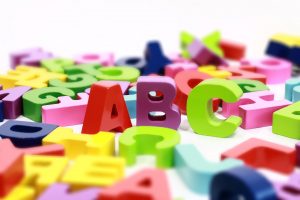1.4: 1.2-
- Page ID
- 82669
Einheit 1.2 (online)

![]() Übung 1a. Listen to the dialogue and click on the correct answer based on what you hear.
Übung 1a. Listen to the dialogue and click on the correct answer based on what you hear.
![]() Übung 1b. Listen to the dialogue and click on the correct answer based on what you hear (True = Richtig and False = Falsch).
Übung 1b. Listen to the dialogue and click on the correct answer based on what you hear (True = Richtig and False = Falsch).
![]() Übung 1c. Listen to the dialogue.
Übung 1c. Listen to the dialogue.
The German language has three different words for “you”.
Sie (formal singular and plural) – commonly used among adults, with someone you don’t know, or who functions in a professional role (e.g., boss, doctor, flight attendant)
Wie heißen Sie? / Woher kommen Sie?
du (informal singular) – used with friends, family, children, pets, fellow students, longtime coworkers
Wie heißt du? / Woher kommst du?
ihr (informal plural) – this the plural form of “du” – used for example with multiple friends or children
Wie heißt ihr? / Woher kommt ihr?
In general, German speakers use much more formal language when addressing each other than English speakers, especially among older people. It is quite common for many people who have been neighbours for years or coworkers in the same office to still address each other with “Frau Meier” or “Herr Berg” and use the “Sie-Form”.
If you are ever unsure whether to use the “du-Form” or the “Sie-Form” (especially in a professional context or when the other person is older or in a higher position of power), it is always safest to use “Sie” until the person to whom you are talking suggests that you use “du”.
![]() Übung 2. Match each picture with its corresponding pronoun.
Übung 2. Match each picture with its corresponding pronoun.
The original version of this chapter contained H5P content. You may want to remove or replace this element.

![]() Das Alphabet. Watch this video and practice as she teaches you the alphabet.
Das Alphabet. Watch this video and practice as she teaches you the alphabet.
![]() Was wissen Sie jetzt? Klicken Sie hier für Quiz 1.2.
Was wissen Sie jetzt? Klicken Sie hier für Quiz 1.2.
Extra Practice (optional):
![]() Video Serie – Nicos Weg
Video Serie – Nicos Weg
Throughout the semester we will use clips from “Nicos Weg” to help practice what we are learning in this course. Nicos Weg is a video series developed by Deutsche Welle. Feel free to use other parts of the series if you want to practice more.
Watch the video here. Then click on “start” under the video and do the exercises.
Media Attributions
- hello © Alexas_Fotos is licensed under a Public Domain license
- star © IO-Images is licensed under a Public Domain license
- alphabet © Gerd Altmann is licensed under a Public Domain license
- play © IO-Images is licensed under a Public Domain license
- check mark © janjf93 adapted by Solomon Hajramezan is licensed under a Public Domain license



